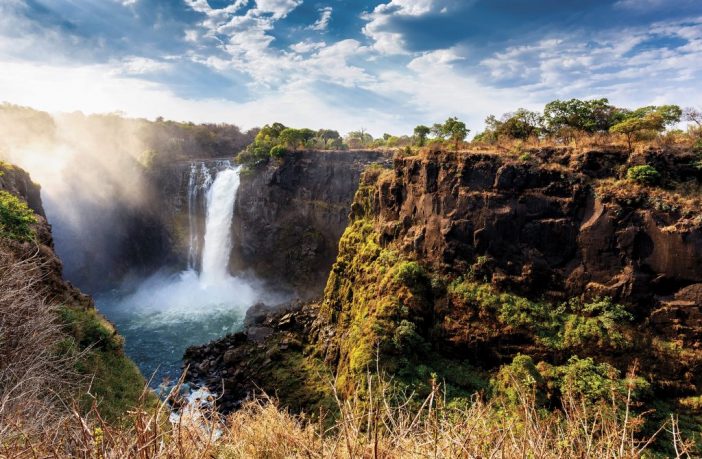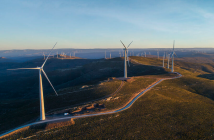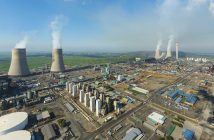- Construction of the USD 4.5bn Batoka Gorge Hydro-Electric Scheme (BGHES) on the Zambezi River between Zambia and Zimbabwe is set to begin after the environmental and social impact assessment was completed on 11th December 2020.
- The Zambezi River Authority’s (ZRA) Council of Ministers awarded the tender for the construction of the 2400Mw Zimbabwe/Zambia Batoka Gorge Hydro Project to a consortium of General Electric and Power Construction Corporation of China back in July 2019.
- The project is structured on a Build-Operate-Transfer financial model bypassing the need for sovereign debt security.
- The project is estimated to take 10 years to complete.
The 2400MW project comprises a 181 m high, 720 m roller compacted concrete gravity arch dam, radial gated crest type spillway, four intakes in the reservoir, two surface power plants, 6 turbines plus transmission lines.
The project is being implemented under the auspices of the Zambezi River Authority (ZRA), a bi-national organisation mandated to operate, monitor and maintain the Kariba Dam Complex as well as exploit the full potential of the Zambezi River.
The plant location is 52km’s downstream from Victoria Falls on the Zambezi River. Bringing Batoka Gorge on-stream will see Zimbabwe attain electricity self-sufficiency. The country is producing about 1,300 MW against demand of 1,900 MW, with deficits being covered by imports from South Africa and Mozambique.
False jobs advertised
According to ZRA chief executive Munyaradzi Munodawafa, the said registration is reportedly taking place in some riparian communities within the project area in Zimbabwe. “People purporting to be recruitment agents appointed by the authority or the developer are illegally registering and collecting monies from unsuspecting members of the public especially those that are resident in Hwange, Jambezi, and other villages and townships” he said. He advised inhabitants of the said riparian communities to be vigilant and guard against such people and report them to law enforcement agencies.
Author: Bryan Groenendaal












6 Comments
In 1992 a feasibility study was completed for ZRA who contracted Acres International (now Hatch Ltd) to do a review by a panel of experts. I lead this panel and submitted our reports to ZRA. I am pleased to see that this very viable project is becoming reality after decades of delays. May this project benefit both countries involved for decades to come.
wow …from 1992…God Bless People Of Vision…I Have A Dream…
It may be ‘feasible’ but it’s definitely not desirable on just about any level.
This project will clearly have a devastating effect on the local environment. I hope those who profit from this can be happy.
This project is the polar opposit of ‘green’ and this publication should be ashmed of participating in such blatant misinformation. The negative impacts vastly outweigh the potential postives and this was confirmed by the outcome of the SEIA process, Experts from across the board as well as tourism, communities and other stakeholders all agreed that the effects overall will be devastating. Shockingly bad journalism.
Hydroprojects use a natural resource (water) and do not emit carbon emissions when producing electricty therefore they are considered ‘green power projects’. We report on all energy projects on the African continent. At no point in the article/press release does it mention that the project is ‘green’. I am not sure why you are blaming the journalism for the shortcomings in the EIA and the associated impacts that affect the local community. Nevertheless, thank you for your comments and highlighting the shortcomings of the project. Editor – Bryan Groenendaal